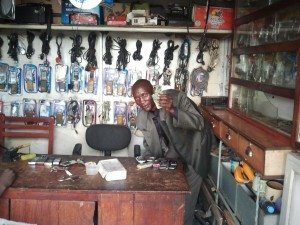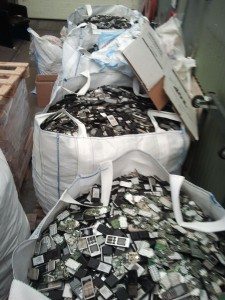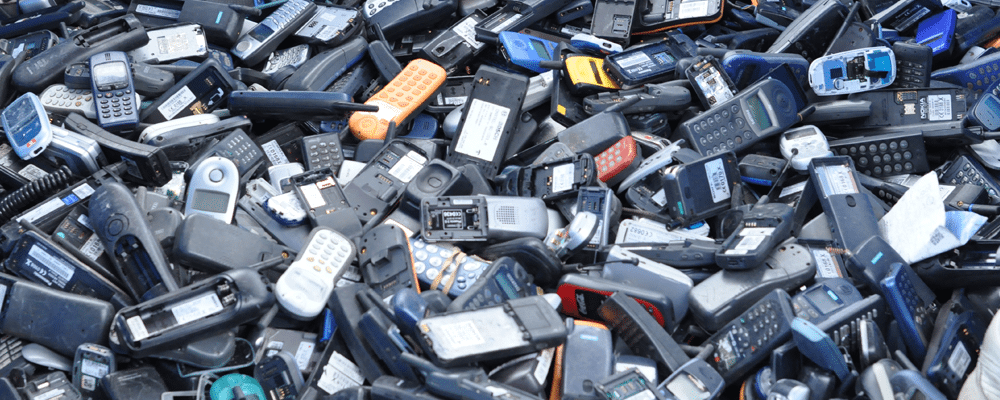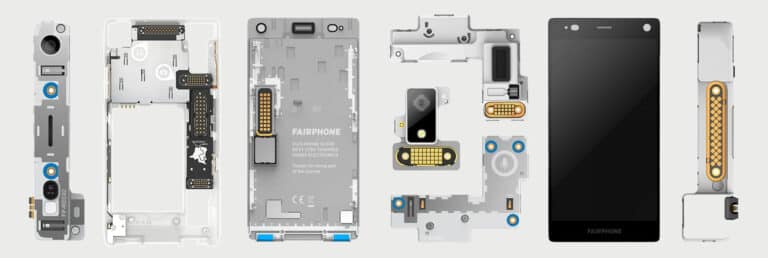Circular Economies with "Closing the Loop"
Fair products should have an end-of-life phase that is fair to society. What we’re seeing right now is that electronics are causing problems due to the absence of end-of-life processes in many developing countries. Closing the Loop has shown that a pragmatic approach can lead to a solution that works because it’s practical, effective, and has a very positive impact all around.
Research, shows that information and communication technology (ICT), and mobile phones in particular, significantly contribute to the economic development of a country. For many in Asia, Africa, and Latin America, they typically serve as the first and only way to connect with communities and the outside world. Hence, the availability of affordable electronics that changes people’s lives has been warmly welcomed in these regions. In recent years, a number of organizations have sought to combine their business sense with a drive for social returns resulting in active ICT reuse schemes (such as Techreturns) and platforms (like the Praekelt Foundation) that contribute to better social conditions in developing countries .

As a result, much needed high-quality electronics, such as mobile phones, have become available to the masses, for instance in central Africa. Their retail prices are now similar to the poor-quality products that flooded the mass market in the past. But forgetting about end-of-life processes has caused problems.
Closing the Loop is aiming to solve the problems that occur when waste disposal policies and solutions are not in place in developing countries.
In most of the emerging world, governments find it a challenge to offer effective and sustainable ways to handle their country’s waste. This is especially true for electronic waste (usually referred to as e-waste). As a result, an electronic device – containing reusable and valuable elements such as metals, but frequently comprising several hazardous elements – ends up in landfills. Or worse, to get rid of plastic components, materials are treated with destructive activities like burning. In addition to the absence of a legal framework, low levels of knowledge concerning the opportunities around and necessity of recycling play a role, especially in Africa. And so, while these countries emerging economies develop their inefficient environmental programs, they can’t prevent e-waste from turning into a problem for their people’s health and environment.
So Let’s Solve It
Closing the Loop’s solution is a practical, structural, and social approach that results in reduced e-waste. By introducing reversed logistics – using value chains the other way around to create a loop – we manage to prevent electronic scrap from ending up in landfills. Or, put simply, we buy scrap from people and companies (in the formal and informal sector) who would otherwise throw the scrap away or process it badly. In some countries, this is combined with recycling awareness campaigns, which we’ve developed together with our partner Text to Change.

Risk-free elements of processing (e.g., separating phones from batteries) are then done locally, after which the e-waste is recycled in Europe, where the world’s most environmental and efficient smelters are located. These companies pay us for the value of the metals extracted from this e-waste. And so, a practical, environmental, and incentive-based solution was developed that supports, educates, and rewards all actors in developing countries’ e-waste “industries.”
Our approach results in a win-win situation, since:
- People make money and become aware of the potential of recycling
- People’s health and safety situations are improved
- The environment is put under less stress
In the future, FairPhone will have the opportunity to use the re-gained metals that Closing the Loop derives from recycled scrap phones. By doing so, FairPhone will work with us to create the first global circular economy product, as we allow materials to go back into the industry.
In order to optimize and create benefits for all, we need to extend the life cycle of a mobile phone not only acknowledge its second life in developing countries. We must bring these phones back into the chain and make use of the opportunity that “end-of-life” offers.
So far, we’ve collected more than 120,000 phones that would otherwise have ended up in places that would harm and pollute. Please keep an eye on our website www.closingtheloop.eu for a soon-to-be-launched crowdfunding scheme.



